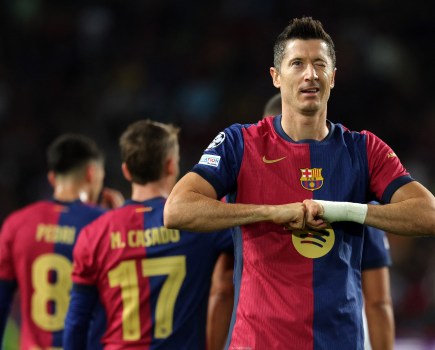Italian football clubs are angry at the measures being imposed by the government to tackle hooliganism after a policeman was killed during riots at last week’s game between Catania and Palermo.
Sports Minister Giovanna Melandri has said clubs which do not immediately adopt the new measures wuld be forced to play matches behind closed doors.
Italy’s cabinet was due to meet at 5 p.m. on Wednesday to finalise the measures, and according to Interior Minister Giuliano Amato, the government will have the final say.
“From the football world we will have a lot of pressure for the show to continue,” said Amato.
“We have the duty towards our law enforcers and the citizens to resist these pressures.
“The well-being of Italian families is more important than the economic interests of those who want the show to continue.”
The president of twice Italian champions Napoli, Aurelio De Laurentiis, said a “fascist climate” had descended on the country since the policeman’s death.
“The closed stadiums are a ridiculous idea. They can’t impose these regulations on us. We must go on strike,” he told Italian media.
Only four grounds in Serie A – Rome’s Olympic Stadium, Palermo’s Barbera stadium, Turin’s Olympic Stadium and the Artemio Franchi stadium in Siena – currently meet the regulations.
The rest, including Milan’s San Siro stadium, risk remaining closed to spectators when play eventually resumes.
Players believe the game needed the atmosphere of a live crowd, and without it, fear that the matches would become meaningless.
“It would be an absurd solution. The sport would lose its meaning,” said Milan captain Paolo Maldini on the idea of playing matches without the fans.
“It would be better to halt play for another week because playing behind closed doors would be the death of football,” said the former Italy defender.
But Melandri said the government would not compromise with those clubs not prepared to comply with regulations passed in 2005.
“We have four fixed demands: closed-circuit TV surveillance, named tickets, electronic turnstiles and crowd control outside the stadiums,” Melandri told L’Unita daily.
“On these there will be no discussion. Either they are there at the stadium, or the match is played behind closed doors.”







